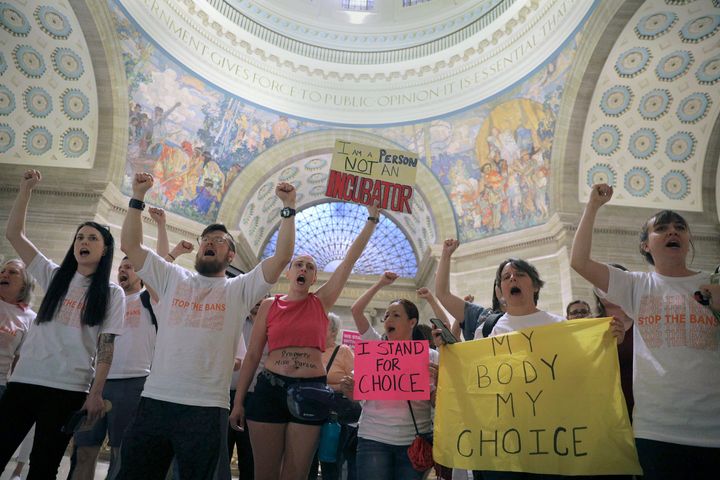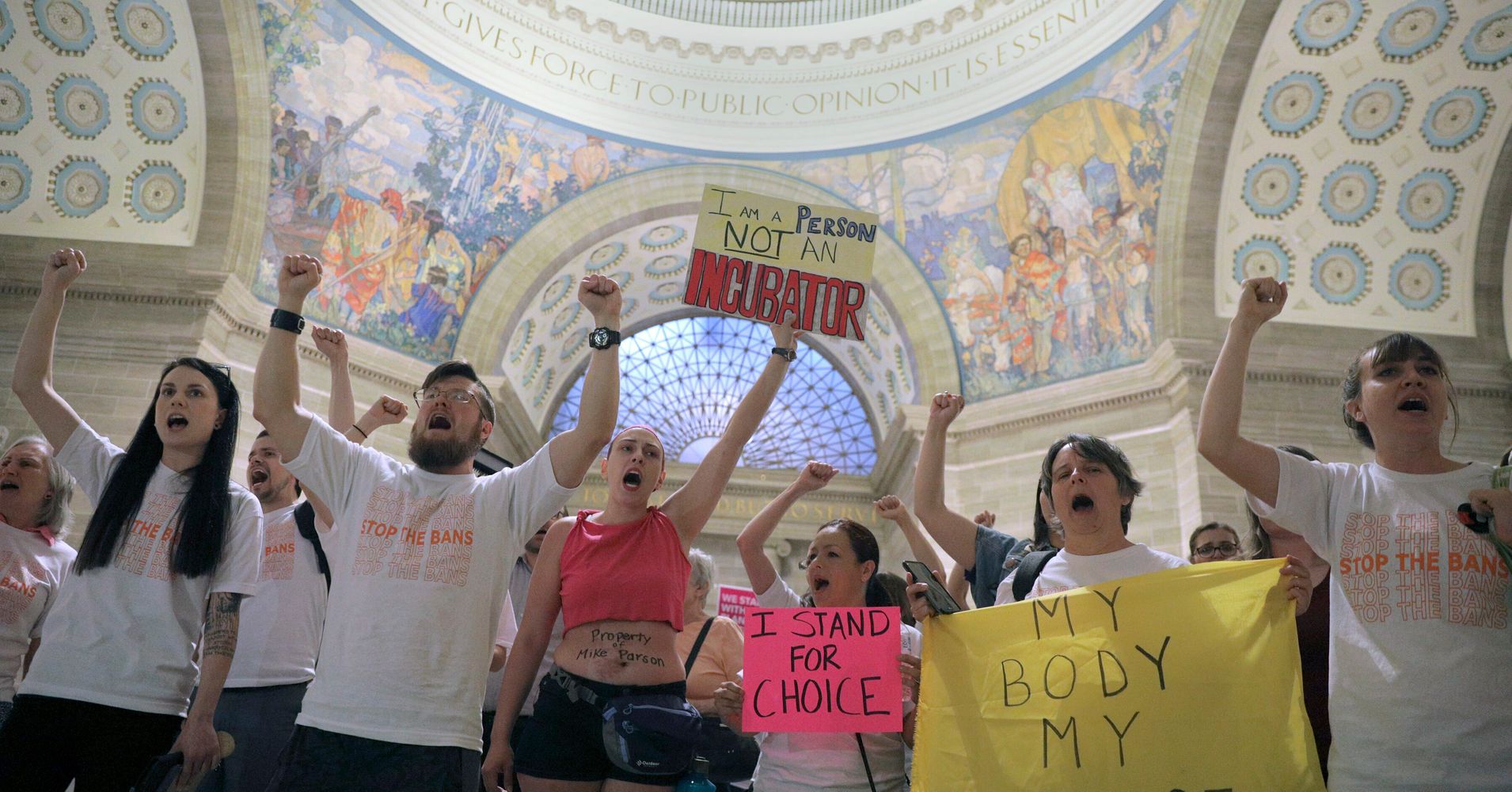[ad_1]
Amid a wave of aggressive state-level anti-abortion laws, Missouri is poised to enact one of the country’s most restrictive, banning most abortions after eight weeks of pregnancy.
Gov. Mike Parson (R) signed the bill into law on Friday. The measure is not expected to go into effect until late August.
Just across the border from Missouri, in Granite City, Illinois, sits the Hope Clinic for Women, which already performs abortions for many out-of-state patients. Missouri has only one abortion provider left, and the state already has stringent restrictions in place, such as a mandatory 72-hour waiting period. Many women find it easier to travel to nearby Illinois, a state with relatively few abortion restrictions, to seek care.
HuffPost spoke with Dr. Erin King, executive director of the Hope Clinic. King, who performs abortions at the clinic in Illinois and also provides gynecological care (but not abortions) in her home state of Missouri, opened up about the changes she anticipates should the eight-week ban go into effect later this summer and not be held up by legal challenges similar to those targeting other new anti-abortion laws around the country.
Missouri already has such limited access to abortion care. So how big a change would this new law be for women there?
It would have a huge impact on my patients, both those at the Hope Clinic who come to us from Missouri and my day-to-day patients at my OB-GYN practice. If all parts of the legislation go into effect, there is not only the restriction on when you can have an abortion; there are changes in the consent regulations and for providers that will make access even more difficult.
We’re expecting to see an increase in the volume of patients, and in the number of women who have faced a lot of barriers by the time they get to us. We’re talking much longer driving distances; more money spent on travel; more money spent on child care … even just barriers trying to schedule appointments with the relatively few abortion providers in the area. We anticipate we will be seeing women later in their pregnancies.
Are you getting questions from patients?
We are getting several calls a day, every day, from people asking if they can still get an abortion. We had one patient tell us that her partner told her he was going to report her abortion and that she was going to go to jail because that’s the new law. We have had patients who arrive at our clinic saying, “I scheduled this appointment before I heard about all of these bans. Is it still legal for me to have this procedure?”
There is already so much confusion and stigma around abortion care. Additional confusion is really detrimental to our patients. So right now we’re trying to make it very clear that this care is still available to our patients. That hasn’t changed at all.

You’ve been an abortion provider working adjacent to (and in) areas with severely limited abortion access for a long time now. Does what’s happening right now feel different to you in any way?
Oh, I think we are in a major crisis. I’ve told a couple of my friends and colleagues: “This is not a drill.” There is no question, to me, that we are facing down a huge battle over abortion, both at the Supreme Court level and in the upcoming election. There was this glimmer of hope a few years ago when the Supreme Court heard Whole Woman’s Health v. Hellerstedt, and there was talk about science and evidence … and now a lot of these bans have language in them that is so medically inaccurate, I can’t even respond to them because they don’t make sense.
I still feel like even though there’s all this media attention and advocacy attention, and there has been some wonderful support for the abortion providers, I don’t think the general public, on their day-to-day radar screen, is seeing that this is as big a crisis as it really is.
This conversation has been edited and condensed for clarity.
This article has been updated to reflect the governor signed the bill.
[ad_2]
Source link

